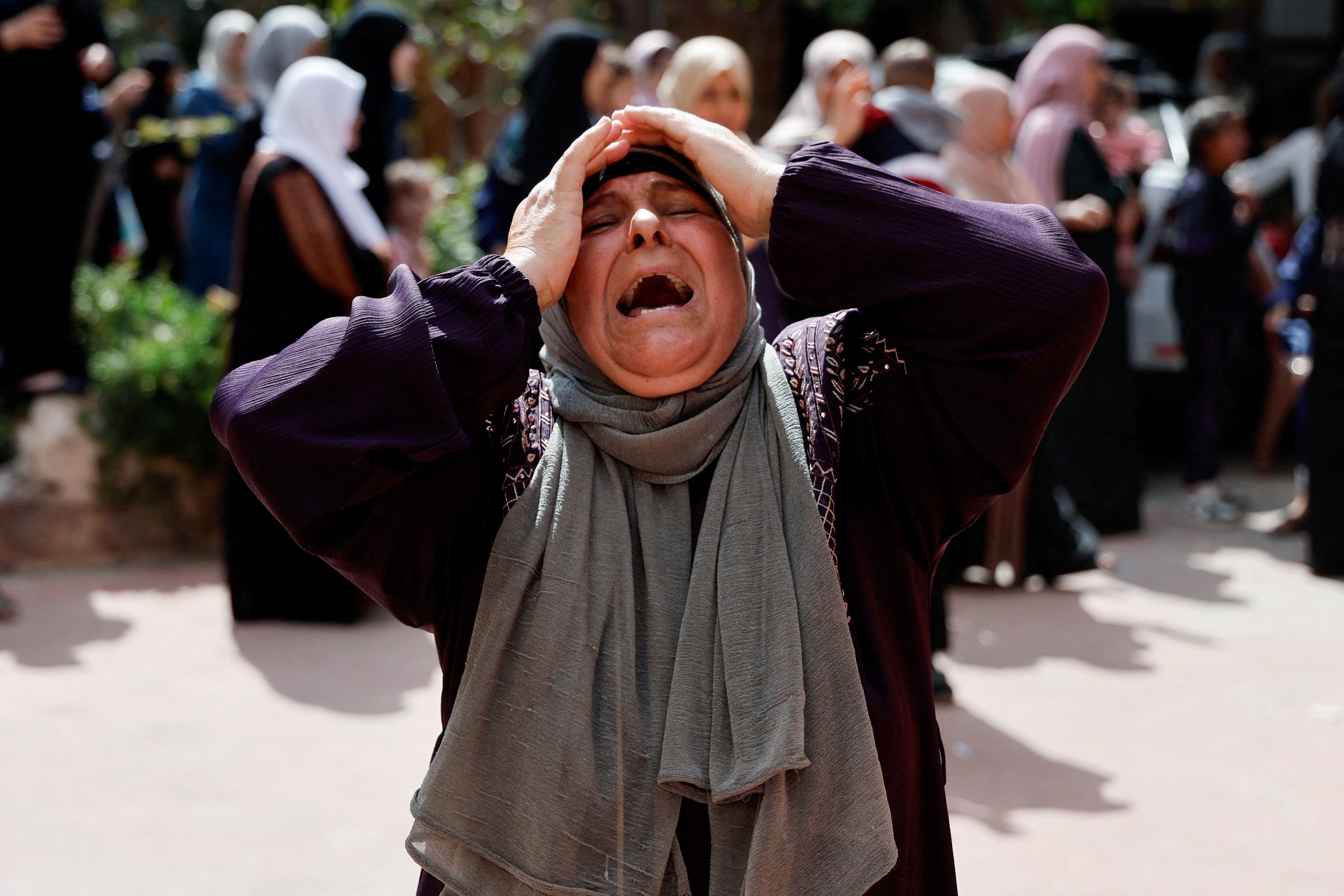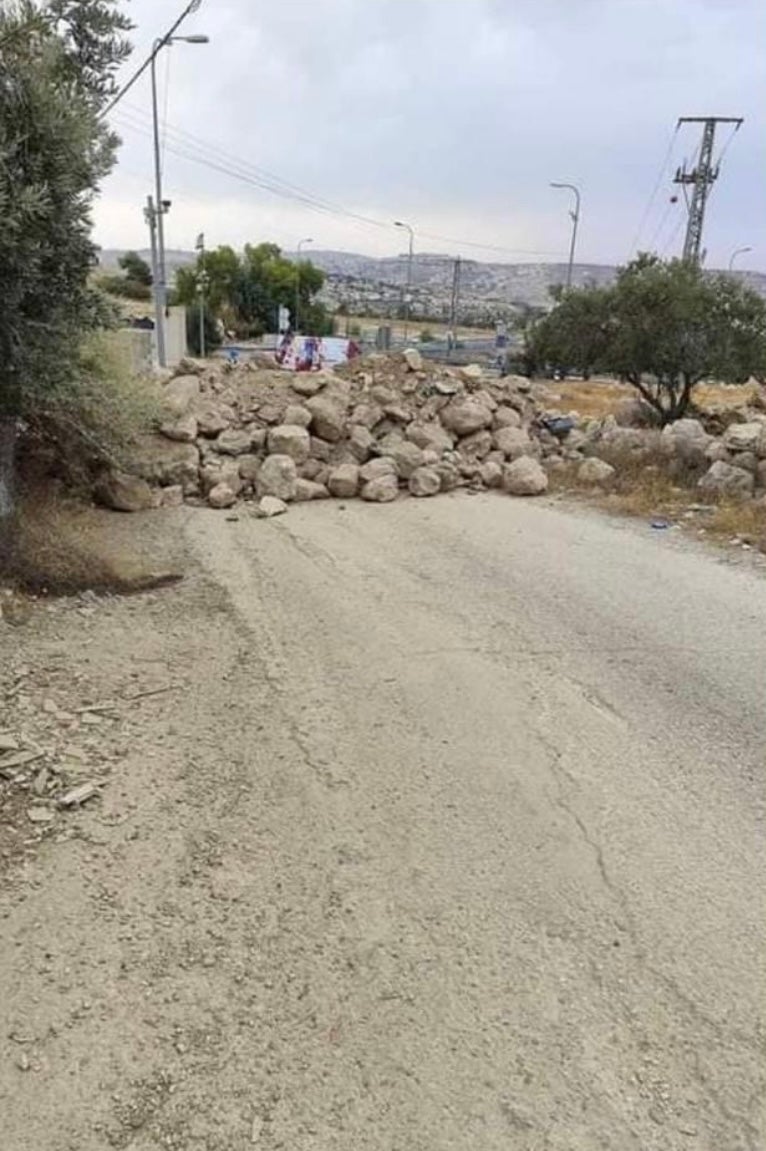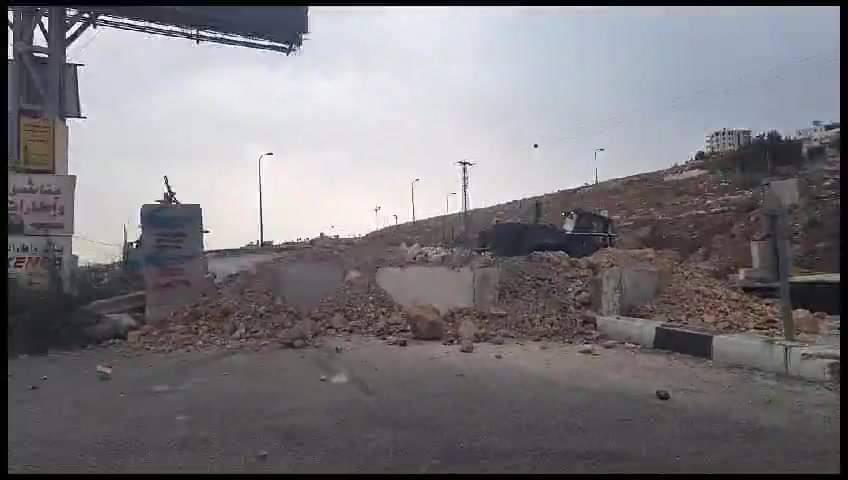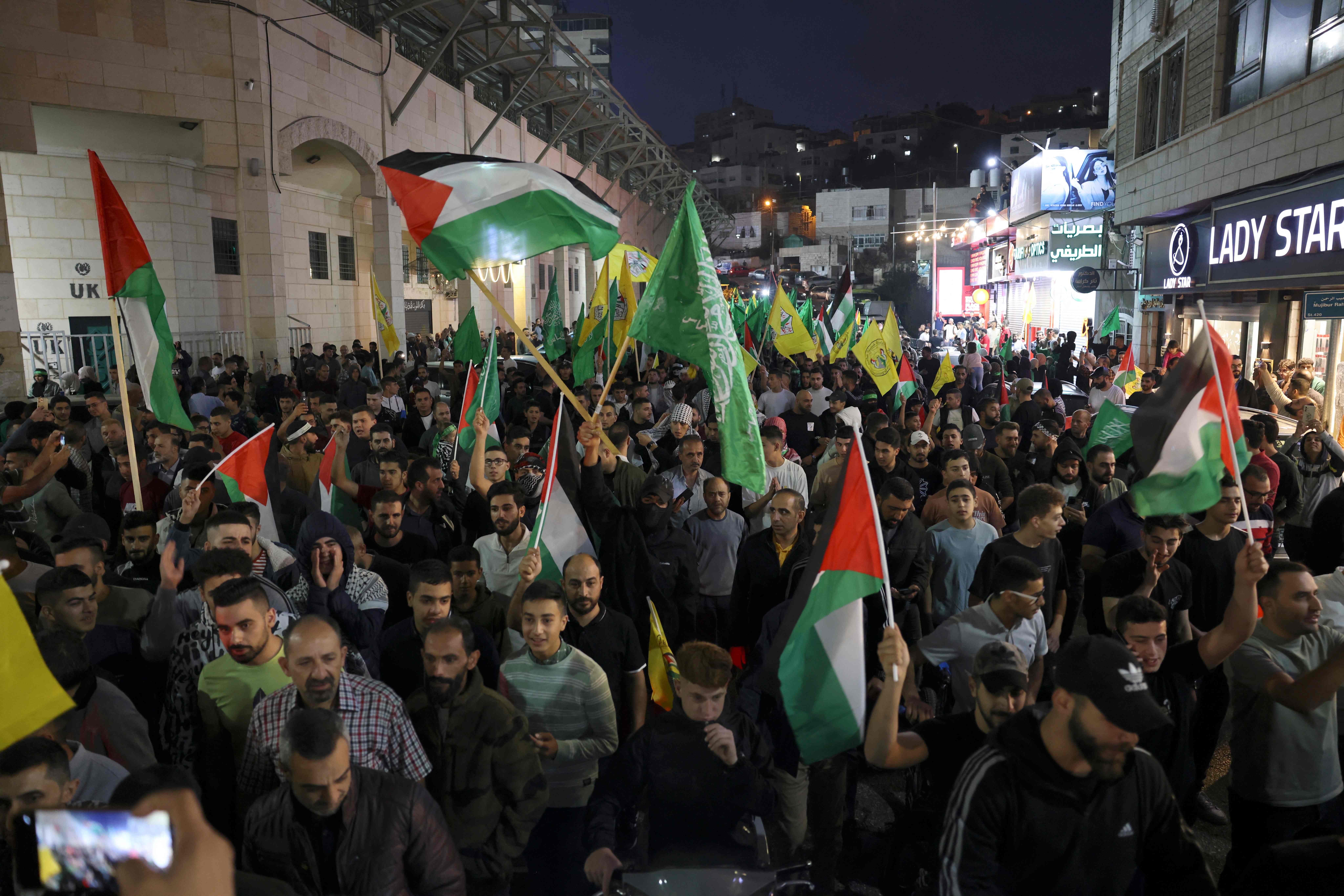Palestinians fear ‘new wave of killing’ in the West Bank as Israel puts it on lockdown
Israeli forces have killed dozens of Palestinians in West Bank following Hamas terror attacks which left hundreds of Israelis dead
Your support helps us to tell the story
From reproductive rights to climate change to Big Tech, The Independent is on the ground when the story is developing. Whether it's investigating the financials of Elon Musk's pro-Trump PAC or producing our latest documentary, 'The A Word', which shines a light on the American women fighting for reproductive rights, we know how important it is to parse out the facts from the messaging.
At such a critical moment in US history, we need reporters on the ground. Your donation allows us to keep sending journalists to speak to both sides of the story.
The Independent is trusted by Americans across the entire political spectrum. And unlike many other quality news outlets, we choose not to lock Americans out of our reporting and analysis with paywalls. We believe quality journalism should be available to everyone, paid for by those who can afford it.
Your support makes all the difference.Palestinians fear a “new wave of killing” in the West Bank after the territory was sealed off by Israel in response to Hamas’s deadly attacks.
The death toll on both sides has continued to rise, with the Gaza Health Ministry reporting on Thursday that more than 1,400 Palestinians had been killed in Israeli air strikes after the weekend assault left around 1,200 Israelis dead.
At least 27 Palestinians have been killed during clashes in the West Bank since Saturday. On Wednesday, three were shot dead by Israeli security forces and masked Jewish settlers in Qusra village near the northern West Bank city of Nablus, the Palestinian Foreign Ministry said, after the Israeli army said it was supplying licensed citizens with thousands of firearms “to bolster defence systems” across the country.

People living in the West Bank told The Independent of their concerns as the crisis continues to escalate. Saed, 26, a resident of Aida refugee camp in the West Bank, feared what would come next.
“We will face more difficult days in Aida. Israel will hit with force and start a new wave of killing,” he said.
Have you been affected? Email alexander.butler@independent.co.uk
There is considerable tension in the region as Israeli citizens and Palestinians clash. Earlier this year it was reported there were now more than half a million Israeli settlers living in the West Bank. The West Bank and east Jerusalem are together home to some 3 million Palestinians.
Mojahed Tbanjeh, a journalist in Nablus, also told The Independent: “The situation here is very bad. Israeli settlers have started attacking the villages.
“Yesterday four Palestinians were killed by Israeli citizens and today another two were killed in Qusra at a funeral, a father and son.
“An hour ago a doctor from the village of Jit near Nablus was abducted. All the checkpoints are closed. Every day in West Bank cities there are confrontations and marches at checkpoints.”


Raya Osama, 30, is a pregnant mother-of-one who is contemplating leaving the area for the first time.
“We’re more afraid of the settlers than the army,” she said. “The settlements are placed between Palestinian villages and they are made up of very far-right Israeli citizens who hate Palestinians and want to punish them for Hamas.”
Ms Osama says she feels her community is “in danger” and wants to leave with her 11-month-old son and her family.
The blockade has closed entrances and exits into Palestinian towns and cities, which Saed said is causing residents to run out of food and fuel supplies.

In one image, a road into Bethlehem can be seen blocked by a pile of rocks and concrete barriers with a bulldozer parked behind. And another image taken in Bayt Ta’mar, a village near Bethlehem, shows rubble and concrete boulders blocking a different road.
Aida was established in 1950 by the United Nations as a refugee camp for Palestinians who fled what is now Israel in the 1948 Israeli-Arab war.
Refugees have remained there ever since, with generations growing up in the camp which now resembles a town and is located next to Israel’s heavily fortified separation barrier. The camp is about 0.7km squared and is home to 6,000 refugees. Ten per cent are Christian, and the rest are Muslim.
Allegra Pacheco, chief of party for the West Bank Protection Consortium, said: “The situation is getting increasingly tense by the minute. There is incitement among some armed settlers to repeat what is happening in Gaza in the West Bank. There have been deaths both yesterday and today because of this.
“Any country that is concerned about destabilisation needs to know that the situation in Gaza is destabilising, but the West Bank could become another front in a minute. It could be another tipping point.”



Join our commenting forum
Join thought-provoking conversations, follow other Independent readers and see their replies
Comments